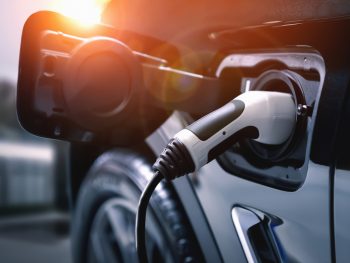EV home charger installation issues still ongoing, reports AFP
Installations of home chargers are still being delayed due to problems from revised regulations covering the installation of isolators.

Fleets and their drivers are having to wait long periods for their home chargers to be fitted while paying more
The issue, first reported by the Association of Fleet Professionals (AFP) in March, is still no closer to being resolved and is typically delaying home charge point work by 4-6 weeks as well as causing uncertainty in costs.
Paul Hollick, AFP chair, said: “This is quite a complex problem concerning the installation of isolators, which allow for the safe isolation of a property’s electricity supply to enable the installation of an EV home charger.
“However, to summarise, electricity industry regulations were changed last year to require at least two visits to fit an EV charger, including one from a representative of an energy provider to fit the isolator. To reverse the decision or adopt a better solution requires agreement from around 40 energy providers – but that doesn’t seem to be forthcoming.”
In the interim, fleets and their drivers are having to wait long periods for their home chargers to be fitted while paying more.
And the AFP said this was a “genuine headache” at a point in time when many fleets are enthusiastically pursuing electrification strategies.
“We want to see a single-visit installation solution adopted that is faster for fleets and, because it means fewer journeys, is cheaper and more environmentally friendly. There is no reason to believe working this way should involve any compromise in the safety or quality of the installation, as long as the installation is carried out by an experienced and qualified electrician.”
In June 2021, decision-makers behind the official Meter Operation Code of Practice Agreement (MOCOPA) – created by electricity distributors and meter operators – removed the ability for MOCOPA-registered companies to put isolators in place under the instruction of a third-party EV charger installation company, stating that this needed to be arranged by energy providers themselves.
This had such a detrimental effect on charging installation times and costs that the decision was reversed in September. However, in January, the new Retail Energy Code (REC), which has superseded MOCOPA, said that the original June decision would be reinstated pending an independent review expected to take around six months. This has yet to be resolved.
The AFP said it would be best for a single electrical installer to fit both the isolator and EV charger on the same visit.
Paul Hollick continued: “As most fleet operators know, the semiconductor crisis has meant that getting hold of home charging units themselves has been tricky and the further issues with installation are making difficult what should be, we believe, a fairly straightforward task.
“This is something that is creating an ongoing hurdle to EV adoption for fleets, and we would like to see the REC resolve the issue as soon as possible. In our view, it has now dragged on for long enough.”
He added that some home charger installation companies did not use isolators, instead wiring the equipment straight into the main fuse board, but believed that most fleet operators were using more comprehensive isolator-based solutions.
MOCOPA itself has acknowledged that until a resolution to this issue has been found, electricians across the UK will continue to remove the property’s main head fuse, causing them to work in an unsafe manner.

